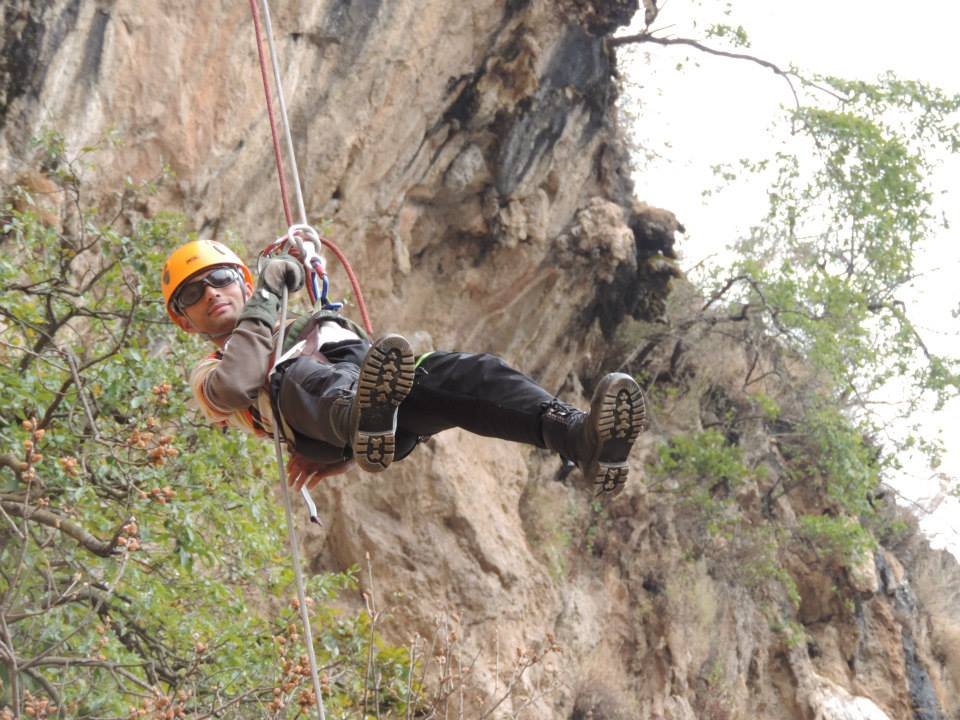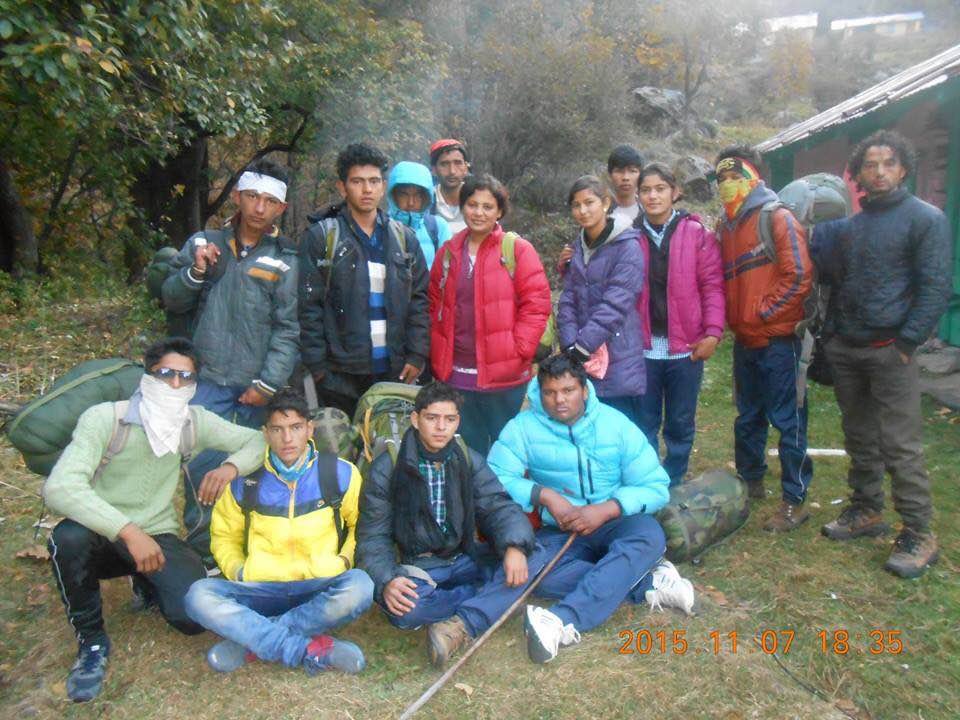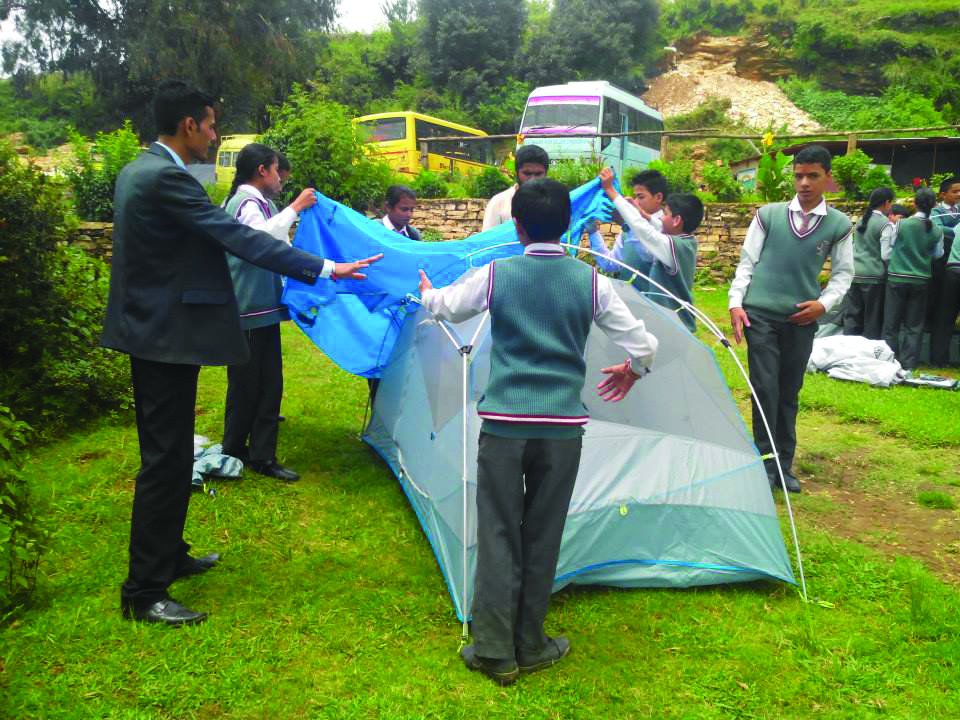Project: Nature and Outdoor Education Project in partnership with the Himalayan Education Foundation (HEF)
Location: Kumaon, Uttarakhand
Category: Education
Promoting Eco-Tourism in the Himalayas
Set against the backdrop of the scenic Himalayan mountains, the town of Chaukori is located in an area of great natural beauty. However, faced with the scarcity of local economic opportunities, very few of the town’s young adults stay in Chaukori. Most are forced to opportunities, very few of the town’s young adults stay in Chaukori. Most are forced to migrate to India’s urban areas in search of a livelihood. With funding from IDS, the Himalayan Education Foundation (HEF) initiated an Outdoor Education Program with a local mountaineering institute, Himal Prakriti of Munsiyari, in order to train HEF students. This training supports eco-tourism and also provides the young people with a livelihood they can be proud of; that livelihood, in turn, helps prevent the young generation from migrating to big cities. Here are some key accomplishments since March of 2015:
The program began by holding training sessions with local students in Munsiyari, Uttarakhand to discuss the various aspects of the program and put together the course handbook. Tarun Mahara, a Chaukori resident who has a degree in biology and is extremely passionate about climbing and fitness, has been recruited to provide outdoor training sessions. Together with his son, he will be teaching courses, giving hands-on training, and leading treks with the students of Himalayan Inter-College, Chaukori, through the spring of 2016. Tarun began leading the students on multi-day treks where they learn to use the equipment purchased through the IDS grant— sleeping bags, tents, tools, etc. Thirty youths completed the outdoor training program in 2015.

This year, HEF used part of the IDS grant to sponsor a Birding/Forest Festival in Munsiyari. This was a huge success, not only in terms of educating the local people about the amazing resources around them, but also in terms of creating awareness to outsiders. In addition, the Birding/Forest Festival has the potential to become an annual event that will bring revenue to the local community—revenue that is based on the area’s abundant natural resources.

All of this is helping to educate the local people about the possibilities of income generation through eco-tourism—an income generation source that fully respects the delicate balance of nature. As part of the program, HEF and HEF’s partners are being very careful to ensure that the people they help fully understand that income generation in the outdoor leadership space (or any field, for that matter) has the potential to provide a sustainable livelihood while respecting the environment.
Uttarakhand is a world-class destination for eco-tourism. However, in spite of the amazing natural resources in the Himalayas, tourism in this region is still quite underdeveloped. IDS hopes to see this industry grow and provide sustainable jobs for local young people; this would encourage Uttarakhand’s young generation to stay in the region to raise their families rather than migrating to big cities in search of better-paying jobs.
–2015 IDS annual report
Nature and Outdoor Education Project

Having helped the Himalayan Education Foundation (HEF) purchase solar panels for schools in Chaukori village in the Pithoragarh District of northern India in the past, IDS is continuing its support in 2015 with innovative activities that go beyond traditional teaching in the classroom setting. Given the region’s proximity to Himalayan mountain ranges, guided mountaineering and trekking is slowly becoming a popular outdoor activity for city dwellers. This means there is good market potential for local citizens to provide mountain guide services.
With funding from IDS, HEF established an outdoor education program with a local mountaineering institute, Himal Prakriti of Munsiyari, to put HEF graduate students through outdoor training programs. These programs not only support eco-tourism, but they also provide a livelihood that the young generation can be proud of—and this helps decrease the rate of their migration to big cities. Some key milestones of the training program since March of 2015 include:
- Building an outdoor education curriculum that is appropriate for students of the school and the region.
- Conducting six outdoor education teaching sesions, each session lasting seven days.
- Designing, producing, and printing resource material in Hindi. While there is a wealth of resource material on outdoor education available in English, it is inaccessible to local educators because of the language barrier. Resource materials will be designed based on the curriculum and on feedback from the teaching and capacity-building sessions.
–2014 IDS annual report

